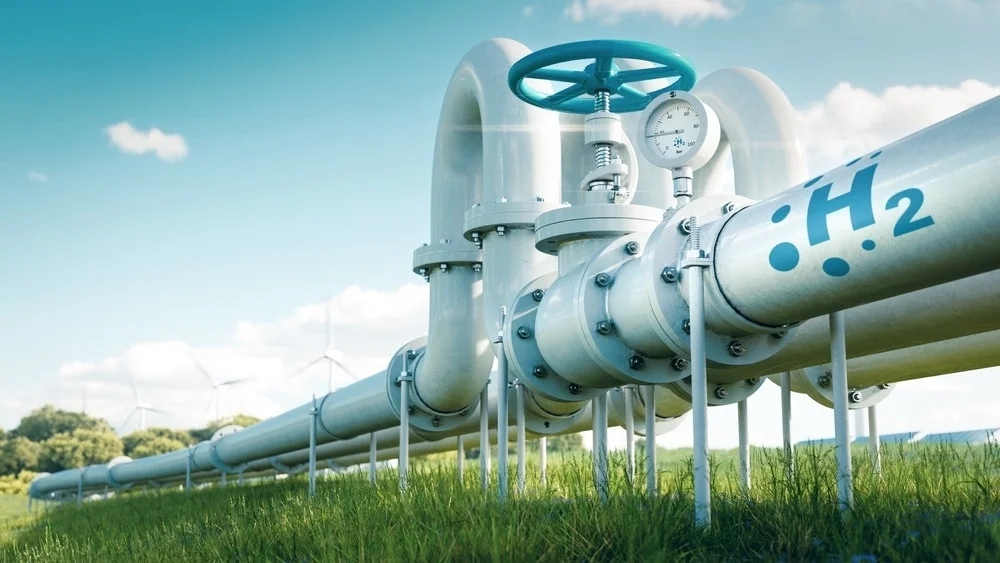Comments
- No comments found

Hydrogen is gaining prominence as a clean and sustainable energy source, but it comes with certain risks, particularly related to leakage.
Hydrogen leaks pose potential hazards, including flammability and the risk of explosions, which makes leak detection critical for industries that utilize hydrogen. Traditionally, manual methods were employed to detect hydrogen leaks, but these methods can be slow and inefficient. Automated hydrogen leak detection systems have become a vital tool for ensuring safety and efficiency. In this post, we will explore the key benefits of automated hydrogen leak detection and why it’s an essential technology in today’s industrial landscape.

One of the most significant advantages of automated hydrogen leak detection is the enhancement of safety. Hydrogen is colorless, odorless, and highly flammable, making manual detection methods unreliable. Automated systems, however, use advanced sensors to detect even the smallest leaks in real-time, experts from H2 scan explain. This rapid detection is crucial for preventing accidents, as hydrogen leaks can escalate quickly if not identified and addressed immediately. With automated systems, safety protocols can be triggered as soon as a leak is detected, ensuring that employees and facilities are protected from potential hazards.
In industrial settings, undetected hydrogen leaks can cause equipment malfunctions, requiring shutdowns that lead to costly downtime. Automated hydrogen leak detection minimizes these risks by identifying leaks early, preventing damage to machinery, and avoiding unnecessary production halts. By catching leaks before they become severe, businesses can maintain smoother operations and reduce the need for extensive repairs or maintenance. This not only boosts operational efficiency but also contributes to the overall profitability of an organization by reducing downtime-related losses.
Manual leak detection methods are prone to human error and inconsistencies, particularly in large industrial environments where leaks can occur in hard-to-reach areas. Automated hydrogen leak detection systems, on the other hand, offer a higher degree of accuracy and reliability. These systems use advanced technologies like infrared imaging, ultrasonic sensors, and gas analyzers to provide precise readings. Automated systems can continuously monitor hydrogen levels, ensuring that even the smallest leaks are detected quickly and accurately. This level of precision ensures that leaks are not missed, reducing the likelihood of accidents and equipment damage.
Another major benefit of automated hydrogen leak detection is the ability to continuously monitor hydrogen levels in real-time. This constant surveillance allows for immediate responses to any leaks and provides valuable data that can be used for analysis. Real-time monitoring can alert operators the moment a leak is detected, allowing them to take quick corrective action. Additionally, the data collected by automated systems can be analyzed to identify patterns, determine the root cause of leaks, and implement preventive measures to avoid future occurrences. This data-driven approach helps organizations improve safety standards and optimize operational processes.
While the initial installation of automated hydrogen leak detection systems may require a substantial investment, the long-term savings they provide make them a cost-effective solution. By preventing accidents, reducing downtime, and minimizing repair costs, these systems can pay for themselves over time. Additionally, the precise detection capabilities of automated systems help avoid unnecessary shutdowns and prevent costly damage to machinery, further contributing to savings. For companies that use hydrogen as part of their operations, investing in automated leak detection systems is a financially sound decision that promotes both safety and efficiency.
In industries that handle hazardous gases like hydrogen, adhering to safety regulations is a critical part of operations. Automated hydrogen leak detection systems help companies comply with stringent safety standards by ensuring that leaks are detected and addressed promptly. Regulatory bodies often require companies to implement reliable leak detection methods to minimize risks associated with hydrogen use. Automated systems provide the level of reliability and accuracy needed to meet these requirements, helping businesses avoid fines and penalties while maintaining a safe working environment.
In addition to safety, automated hydrogen leak detection systems play a role in environmental protection. Hydrogen, though considered a clean energy source, can still pose environmental risks when leaked in significant quantities. Large hydrogen leaks can contribute to air pollution and have negative effects on ecosystems. Automated detection systems help prevent large-scale leaks that could harm the environment, aligning with the broader goal of sustainable and responsible energy use. By minimizing hydrogen emissions, companies can reduce their environmental footprint and demonstrate their commitment to eco-friendly practices.

Automated hydrogen leak detection offers numerous benefits, from enhancing safety and improving operational efficiency to reducing costs and protecting the environment. The ability to quickly and accurately detect hydrogen leaks in real time is essential for industries that rely on hydrogen, ensuring that risks are minimized and safety protocols are enforced. As hydrogen continues to grow as a viable energy source, the importance of reliable leak detection will only increase. Investing in automated hydrogen leak detection systems is not just a matter of regulatory compliance; it’s a crucial step toward safeguarding both employees and the environment while optimizing industrial processes for the future.
Leave your comments
Post comment as a guest